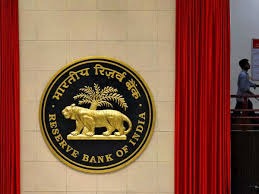Delhi Assembly elections announced: What is the Model Code of Conduct and how does it impact development works
The Delhi Assembly elections will be held on February 8 in a single phase, while counting of votes is scheduled for February 11, the Election Commission announced on Monday.
According to the final electoral list, 1.46 crore voters in the national capital are eligible to cast their ballots.
The term of the current Assembly ends on February 22. The Aam Aadmi Party (AAP) under the leadership of Arvind Kejriwal came to power five years ago with a massive mandate, winning 67 seats in the 70-member House.
The AAP says it is confident of retaining power. Pitted against Kejriwal’s party are the BJP and the Congress.
The AAP says it is seeking another mandate from Delhi’s voters on the basis of the work the Kejriwal government has done in the past five years.
Hours after the poll body announced the schedule for the elections, Kejriwal said his party would run a positive campaign. “I urge people to vote for us only if they think that we have worked for the city,” the Delhi chief minister said. “Do not vote for us if you think we have not worked.”
With the elections announced, the model code of conduct has also come into effect. Let’s take a closer look at what the model code of conduct is and what it means for Delhi till the next government is sworn in next month.
What is the Model Code of Conduct?
The Model Code of Conduct provides a set of norms for political parties to abide by in letter and spirit during the course of the election process.
The Election Commission enforces the observance of these norms by political parties in power at the Centre and the state as well as by contesting candidates.
The Code seeks to ensure that official machinery needed for planning and conducting elections is not misused, and there is a clamp down on offences such as impersonation, inducement of voters, and intimidation of voters are stopped.
The Model Code of Conduct gets enforced from the date when the Commission announces the election schedule till the entire poll process has been completed.
Ads regarding achievements of a political party that have been paid by the public exchequer in the electronic and print media, and misuse of official mass media are also prohibited.
Ministers must not combine official visits with electioneering work and not make use of official machinery or personnel during electioneering work. An exception for this is made for the Prime Minister.
How are development schemes affected?
Ministers and other officials are not allowed to sanction grants or payments from their discretionary funds once elections are announced.
Any development work for which the order has been issued but which has not started on the ground, may not be started once the Code is enforced. But if work has already started in the field, it may be continued.
Fresh release of Local Area Development Fund of MLAs cannot be made for any scheme once the Model Code of Conduct has been enforced.




